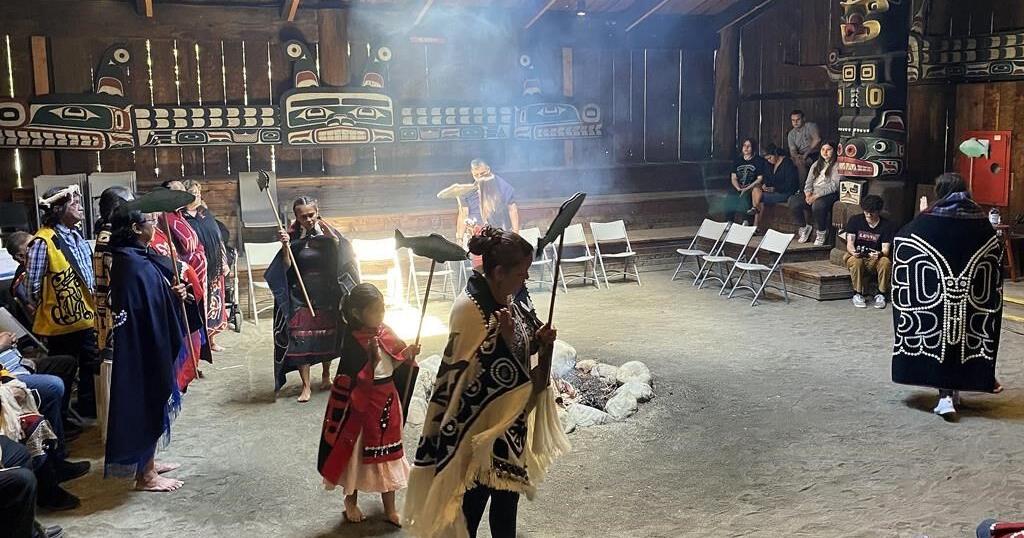TERRACE – A draft treaty decades in the making has been signed by a First Nation in British Columbia’s northwest, moving the nation away from the “repressive and outdated Indian Act,” its chief said.
The proposed deal with the Kitselas nation is the first treaty with a B.C. First Nation in more than a decade and would give the band 38,000 hectares of land and self-governing powers.
Kitselas First Nation Chief Councillor Glenn Bennett said Monday that the treaty provides “legal recognition of lands, resources and monetary compensation.”
“I am hopeful that today’s occasion will mark a turning point for our people and be a positive note for our own history,” he said during a ceremony where chief negotiators of all three parties initialled the draft treaty.
If approved by nation members in a vote next year, the treaty could become law as early as 2028, constitutionally recognizing the nation’s rights to governance, harvesting, land ownership, resource management, and other benefits.
The treaty also includes $108.9 million from the federal government.
Both the federal and provincial governments would have to pass legislation after ratification by the nation, before the treaty would come into effect.
Once fully ratified, the First Nation would join eight others as the only modern-day treaty holders in B.C.
The Kitselas First Nation has a population of about 740 people with reserves and territory that surrounds Terrace and the Skeena River.
Bennett said the nation’s elected leaders want the nation to be self-reliant and sustainable, and to generate its own economic wealth.
“This is one more step forward, away from the repressive and outdated Indian Act, and its representatives.”
Federal Minister of Crown-Indigenous Relations Gary Anandasangaree said during the ceremony on Monday that the agreement “represents reconciliation in action.”
“It reinforces the profound shift of the relationship between the Government of Canada and the Government of British Columbia and the Kitselas First Nation toward a new era of co-operation and partnership,” he said.
In an interview Sunday, the minister said there were “very intense conversations” around the negotiating table over the last several months.
He said there are still some “minor issues” that need to be worked on, but all sides have been able to “substantially conclude our negotiations.”
“So, I think there were some things that did have last-minute conversations, and we’ve agreed on a path toward concluding the treaty with some minor issues to be ironed out over the next few months,” he said.
Anandasangaree said the powers under the treaty are ones that the First Nation has inherently had, but are now being restored.
Murray Rankin, B.C.’s minister of Indigenous relations and reconciliation, called the development a “milestone,” noting that the initialling comes after about three decades of negotiations.
“Ultimately, we are changing the Constitution of Canada, we’re changing the constitutional fabric of our country when we solemnly enter into a treaty,” he said. “It’s not for the faint of heart. It’s a major step.”
He said it is his hope that B.C. will see more treaties like it in the future.
Premier David Eby told an unrelated news conference on Monday that he’s confident the treaty process will provide clarity around boundaries of First Nation land, and that his government will continue to work with neighbouring nations on treaties of their own.
“We do have to move forward with these treaties. We have to move forward with this clarification. Because without that, we’re going to fail to realize the prosperity that we should be bringing everybody along in agreements that lift all boats right across the province,” he said.
Anandasangaree said the federal government hopes it will be able to advance other treaties in B.C. “as early as late this year.”
“This is something that requires an enormous amount of commitment over sometimes decades, hopefully not that long,” he said.
“But it does require Nations to have trust in governments and I think for governments to build that trust.”
This report by The Canadian Press was first published June 24, 2024.
